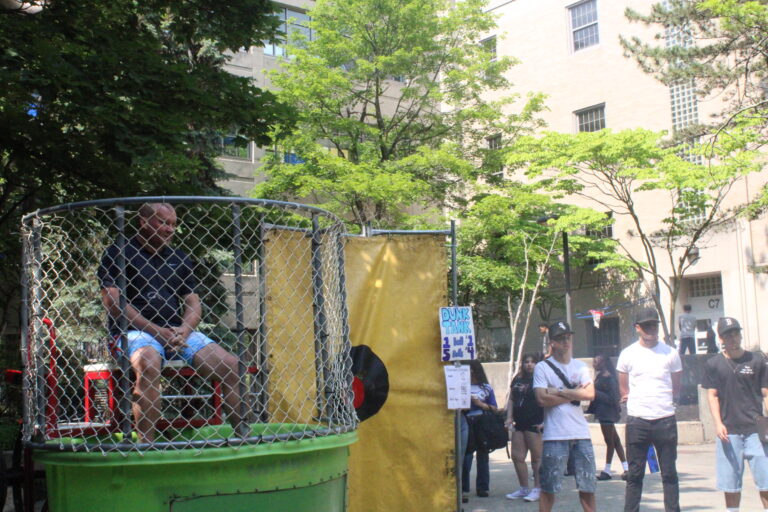
The AP Research class on the day of presentations. Photo submitted by Sydney Stumpf.
Preface:
For the entirety of my high school career, I have been utterly fascinated with the urban community. Malden is very representative of the traditional urban community, given its accessibility to Boston, its commerciality, and the high number of residents. Now, as a politically active and diverse school, the city is bound to be criticized in one way or another by students. In the past couple of years the word “gentrification” flew around with causality. From the ways in which Malden Center has changed to the ways students are treated and represented in schools, people came to be all too familiar with the word.
When I entered my AP Research class, from the minute I was enrolled my course of action for my year-long research project was evident. Sure, we all assumed Malden was going through gentrification, because we see the changes happening. Then, I wanted to purposefully put the label on the city, or potentially disprove us all.
Although, as you will read, gentrification as I define it, is meticulous and precise, while we as a society define it differently. Now, upon entering my AP Research course and declaring I would be studying the gentrification of Malden, I was shocked, to say the least, that no one knew what it meant. It is an extraordinarily important term, given the concept reflects classism, racism, and the ways in which policy has the ability to influence lives. The term asks the question, What does it mean to make a city better? Gentrification, to put it simply, is when wealthier in-movers take over the population of a city, effectively changing the social and physical landscape of the city, whether through cultural, residential, or commercial displacement. (The exact definition used for the purposes of my research differs slightly; see below.)
Before starting my project, I became on the fence about my general line of inquiry. I felt the need to switch everything so my topic was more understandable, the method easier, and the whole project essentially simpler. I kept the project as I originally thought of it, because I decided that it was significantly more important than a research project of astrology and Malden High School students, and that above all, it most corresponds to my goals in post-secondary education and beyond.
After graduation I’ll be going to the Big Apple to further pursue my education. I will likely be majoring in Urban Studies as to prepare myself for a career in public policy in order to address the problems faced by urban communities, including poverty, education, food accessibility, and more. The AP Research course has not only helped me reflect my interests in a tangible product, but give me the tools in which I can further pursue similar projects.
Sydney Stumpf, Editor in Chief of Print

Part of my methodology was to identify and analyze the relationships between the data points collected in reflection of the indicators. This was in order to more fully and justifiably make a conclusion based on the complexity of the idea of gentrification, instead of several independent variables with probable different causes and effects.
Key Takeaways from the data collection:
Median income increased 12.4% while home values increased 65.4% and rents increased 28.5%
Median income increased 12.4% while poverty rates increased 3.1%
More people fell under the identified “young” age bracket (+2.3%)
In the final research paper, I came to the conclusion that Malden was going through gentrification given the data collected and relationships analyzed. Here, I argue the same. However, if you take the term gentrification out of all of this research and are left with the numbers, still, problems shine through. How are people of a working class to afford homes or apartments in Malden, when their incomes are increased by 12.4% while home values and rents run right past with both rates of change surpassing that of the income, over doubly? And why is the rate of poverty increasing, but the median income of the city increasing as well?
As I prepare to leave Malden, and venture into a new life, I feel nearly afraid for the progression of the city. An income gap resulting in tremendously polarized walks of life, while Malden still becomes the up-and-coming spot for professionals and academics. At what cost does this come at?
Unaddressed in my research project was the idea of displacement. Displacement in the sense of cultural or physical, whether commercial or residential. This was left unaddressed for a couple reasons. For one thing I was not given the tools necessary to fully address this issue, and the second being that the focus of this research was the concept of gentrification as it occurs presently: I disregarded the causes or motivating forces of gentrification, while also disregarding the effects of the process outside of the process itself.
When I come back in December, or May, how will the city look? Will I take the bus to the train station and be familiar with what I see? Or will this store or that store pop up in place of the diverse stores that have clustered in the square? From the phantom city hall will “new” and “expensive” sweep downward like a wave? Will Malden High School be target of the wave?
I ask not for much, in this. I would like the city, everyone in the city, from the residents to the professionals and academics, to the students and the teachers, to the administration which has provided backdrop for the gentrification of the city, to evaluate in what ways they can protect the sanctity of what we hold so dear of this city.
Will Malden still be Malden in 2020? 2025? We claim as a city to treasure our diversity as a community, but how long will it last?



